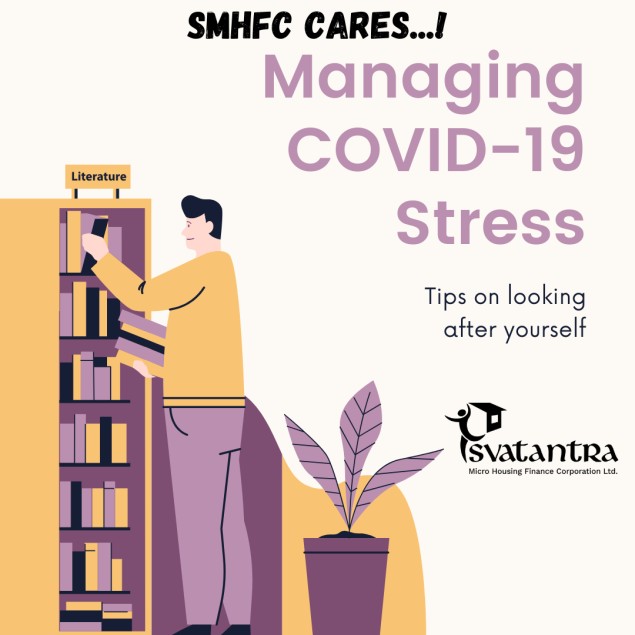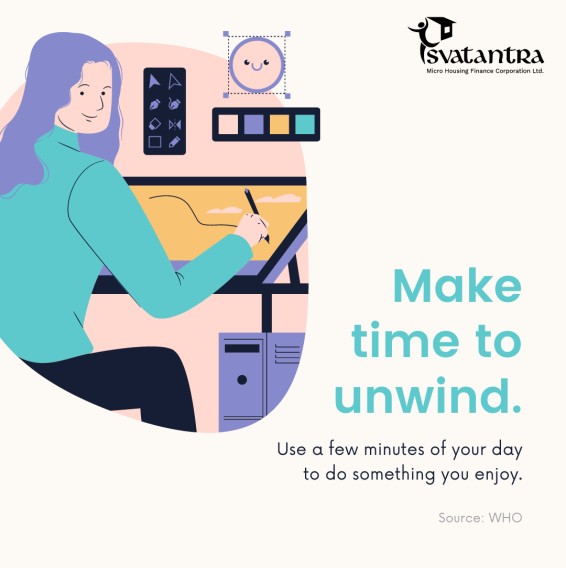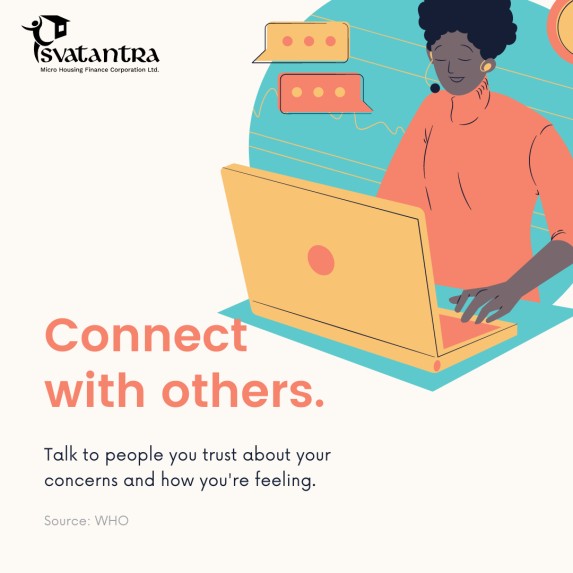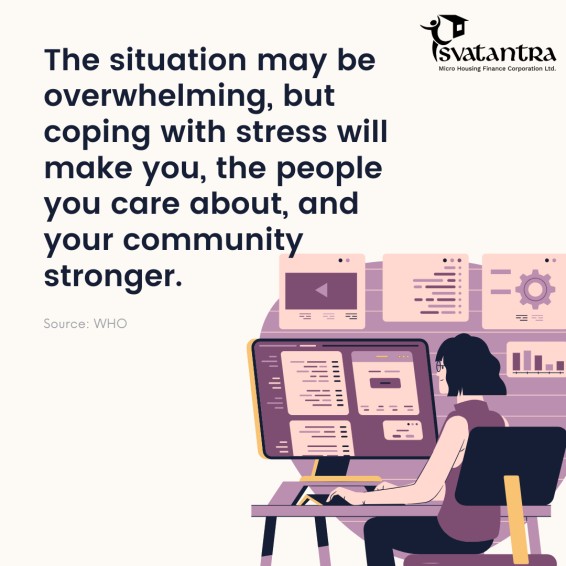LOOKING FOR A NEW HOME LOAN ?
Call Us Today !
 1800 1234 427
1800 1234 427
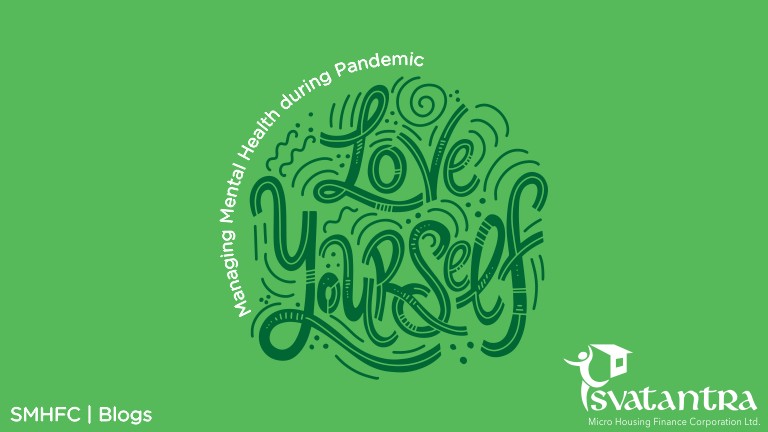
When the coronavirus (COVID-19) pandemic hit us, we were presented with new and unique challenges. Suddenly, both at the personal and work front we were navigating uncharted waters with this virus. As a company we felt it was important that we tackled the situation in hand with new ways while also taking care of our mental health and well-being.
Many were remote-working full-time for the first time, isolated from co-workers, friends and in many cases family. Our daily living routines were completely disrupted causing added anxiety, stress, and strain—physically & mentally. It was completely natural for this kind of disruption and uncertainty to lead to anxiety and stress.
The government’s National Mental Health Survey reported that about 10 percent of adults meet diagnostic criteria for a mental health condition (ranging from mood and anxiety disorders to severe mental illness). The Global Burden of Disease study estimated that nearly 200 million people in India have experienced a mental disorder, nearly half of whom suffer from depressive or anxiety disorders. India accounts for more than a third of the female suicides globally, nearly a fourth of all male suicides and suicide has been the leading cause of death in young Indians.
Looking at these numbers, It was clear to us that, during these uncertain times, It was imperative to ensure the well being of our employees. And not just physical health but also their mental well being. We knew what we were dealing with.
Work from home challenges
Isolation and Loneliness: Employees may feel isolated and lonely when suddenly their home becomes their new office. They miss their coworkers. They miss chit-chatting while having coffee or lunch together. At Svatantra, a lot of our colleagues were staying away from their families and those who didn’t get a chance to go back to their hometown got stuck at their PGs or rented accommodations alone. Even the ones who managed to go back to their families missed interacting and discussing their work with their colleagues. This may lead to a feeling of loneliness and isolation. According to a Buffer Survey, 19% of remote employees report loneliness as their biggest challenge.
Lack of Personal Space: With the lockdown, everyone was staying home, with no way to go out even for a little while. During social isolation, sometimes even the presence of our loved ones might seem overwhelming. While in quarantine, experiences like a family member constant coming in with something while you are working may seem overwhelming. Although isolation makes us crave the company of our loved ones more, our innate need for personal space doesn’t skedaddle.
Watching News: Watching news cover COVID numbers soaring up, the drug development reaching nowhere, the world coming to a standstill, people don’t realize how badly this affects them. The curiosity and the desperate need to know when things will get back to normal and new developments related to Covid-19 drove everyone to sit in front of the “Idiot Box”, not realizing the mental trauma that it is causing.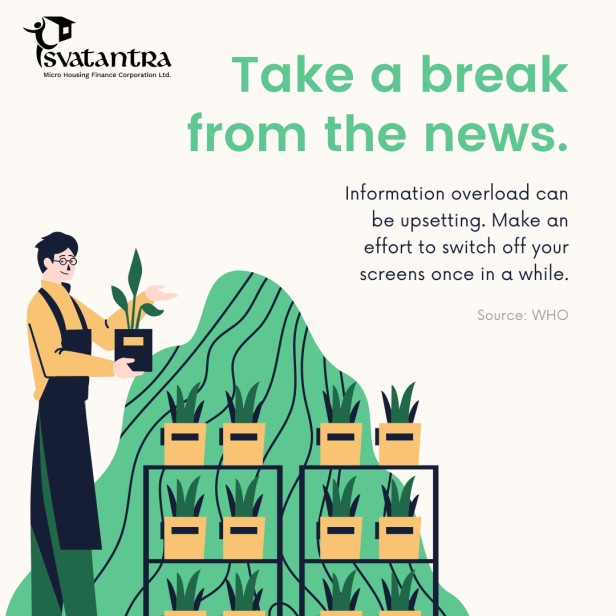
Anxiety and Stress: The boundary between work and home life blurs for people who work in the same place they sleep. They can feel pressure and stress. People have to manage their time, to-do, house chores, family, and projects. They may feel anxious to ‘be on’ when they should ‘be off’.
Depression: Anxiety, stress, loneliness, and isolation can lead to depression. People feel stuck and it causes a loss of productivity.They feel frustration, irritation, loss of interest, sleep disturbance, tiredness, restlessness, trouble concentrating, and physical problems.
SMHFC Cares
At Svatantra MHFC, we launched a programme called SMHFC cares, where we not only highlight about maintaining physical health and hygiene but also an extreme emphasis on the importance of Mental Well-being during the pandemic. The idea was to reach out to people and let them know that we are in this together. Between navigating added family responsibilities, managing the pandemic - related fears, and facing increased workloads, we want to protect our employees from the risk of burning out.
